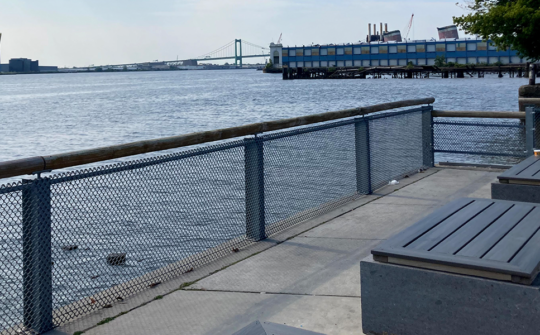
In response to the worldwide COVID-19 pandemic, ULI’s Advisory Services program created a suite of new virtual programs that allows ULI and its members to continue to fulfill ULI’s mission and provide strategic advice to communities to which we were unable to travel and spend time.
Between April 2020 and September 2021, the program completed 14 virtual Advisory Services panels and 10 virtual project analysis sessions globally, and successfully engaged 50 percent of new panelists, expanding the reach of the program. The program innovated to conduct stakeholder interviews, site tours, and intensive group collaboration virtually, sharing learnings with other branches of ULI.
“The COVID-19 pandemic has fundamentally changed our world. Though the impacts of the pandemic on land use, the real estate industry, and municipal organizations are not yet fully understood, ULI has begun to examine how to react, how to adapt, and how to pivot effectively in the face of this challenge. Operationally, we have now (as of November 2021) successfully completed 15 virtual panel engagements. And while our members and the staff look forward to returning to our in-person panels in 2022, our virtual offerings are now and will continue to be an integral part of the program.”—ULI’s Advisory Services team
ULI member Marilee Utter chaired a virtual Advisory Services panel for Nashville, Tennessee, in 2021. “I was initially dubious about doing advisory panels virtually, but the Nashville experience was eye opening. In the end, all the panelists agreed that it worked really well, offered some unanticipated advantages, and we would gladly do it that way again. Judging from the results we’re seeing on the ground, the panel analysis was equally strong and our recommendations were right on target.”
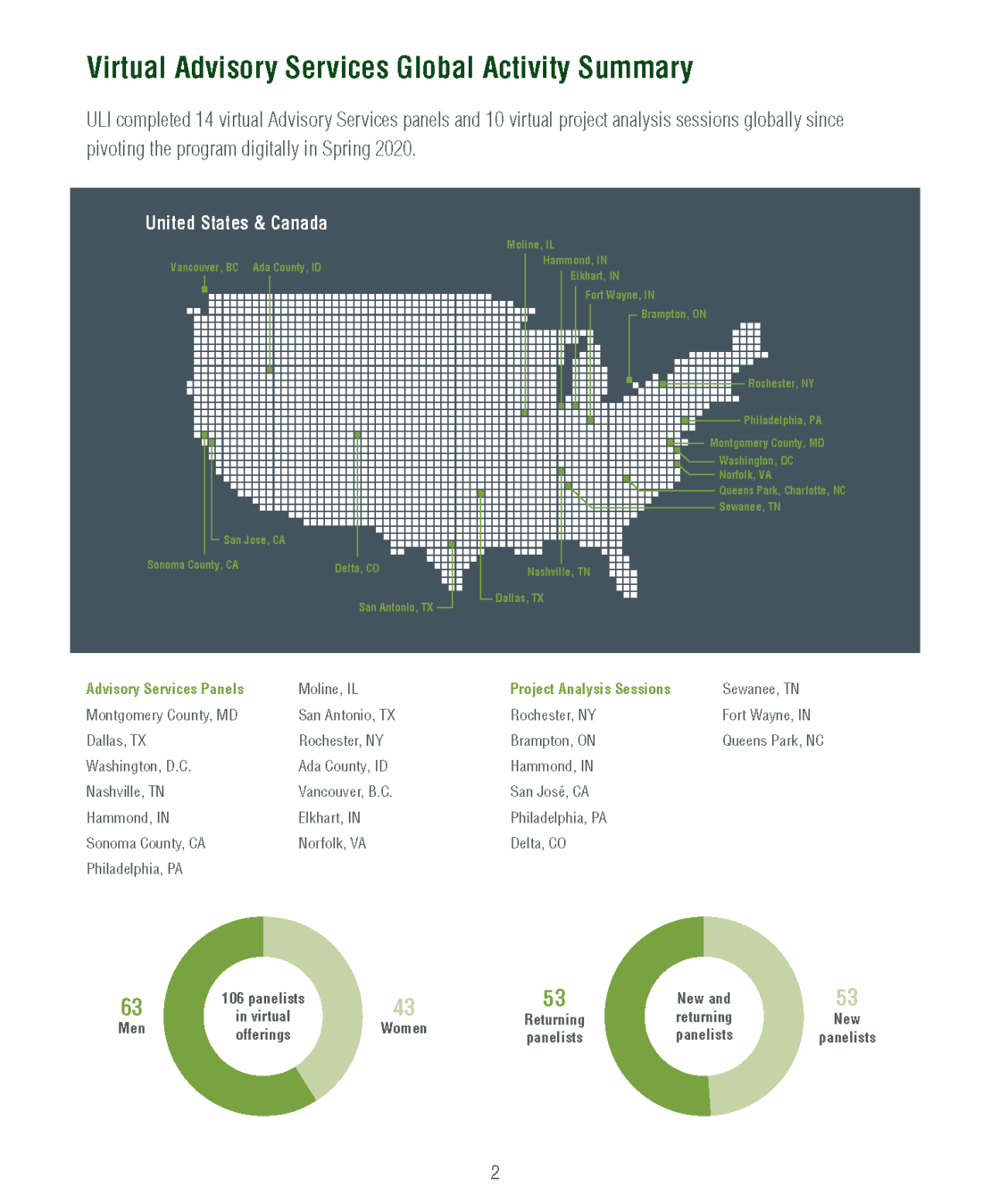
Read about all of ULI’s recent virtual Advisory Services panels here.
Several recipients of panels from ULI’s virtual Advisory Services program have begun to implement policies in line with ULI’s recommendations:
Washington, D.C.: Advisory Services’ Role in COVID-19 Recovery Planning for the Central Business District
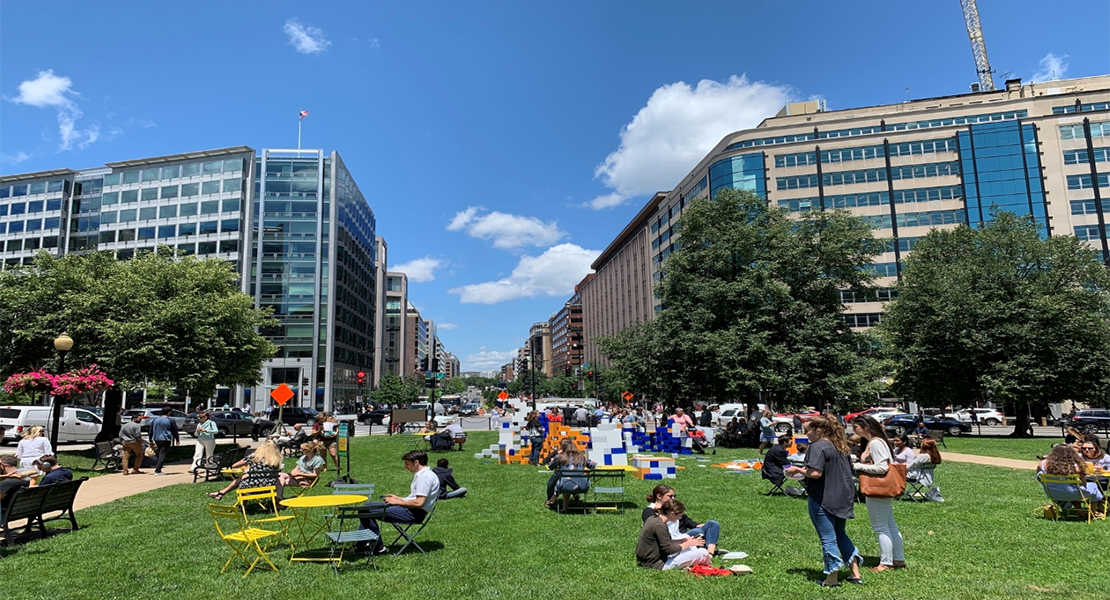
Washington D.C. Economic Partnership
Across the United States, hospitality, convention, and visitor sectors have been severely affected by COVID-19. Washington, D.C., has seen a decline in visitation, hotel occupancy, and overall tax revenues. Retail and entertainment businesses have suffered similar retrenchment in the economic downturn. Since the beginning of the public health emergency, a combination of remote work and stalled business and leisure travel has meant D.C. area businesses lost significant portions of their customer base, resulting in widespread business closures and vacancies and exposing the core vulnerabilities of a central business district (CBD).
As a result of this decline, existing underlying community stresses and racial inequities have been amplified. Communities of color have shouldered a disproportionately high burden from these public health, economic, and environmental shocks to the system. And yet Washington, D.C., remains an economic, cultural, and intellectual center of global significance.
In November 2020, the District of Columbia Office of Planning, the Office of the Deputy Mayor for Planning and Economic Development, and the Washington, D.C., Economic Partnership asked an Advisory Services panel to evaluate the District’s CBD in order to provide actionable strategies for recovery and resilience for the city’s primary commercial district and employment hubs.
The panel was asked to consider specific issues and impacts of COVID-19 and make recommendations to optimize the mix and use of space in key employment centers aimed at minimizing vacancy, catalyzing vibrancy, bolstering the tax base, and creating new opportunities for underserved entrepreneurs.
Key recommendations by the panel identified the District’s CBD as a series of places or “nodes” that can be reimagined and intentionally activated to spur economic resilience and support inclusive entrepreneurship. More broadly, the panel recommended that the District rethink the CBD and consider ways to attract a larger pool of business types, adopt new programming, and use existing infrastructure to attract people downtown and get feet on the ground and lower barriers to accessing prime commercial space in the CBD, as well as consider the CBD as a place with a more distinct character.
Focusing on diversity and equity in the CBD, the panel recommended (a) reimagining how community-serving anchors, small businesses, and those owned by people of color can thrive in the downtown market; (b) creating workplace hubs that help support the growth of social entrepreneurship in the market and help provide an alternative to support businesses that have inclusion and social impact at the forefront; (c) exploring ownership models that focus on aligning equity capital alongside investors of color; (d) conducting significant analysis of the existing business and residential community within the CBD to determine the unmet demands and representation of minority business owners, integration of workforce development into the CBD as part of new business, and funding opportunities; and (e) evaluating mobility within and to the CBD to increase access and ensure that planned access projects support equity goals.
Since the panel, the District has moved forward several initiatives and programs to bring vitality downtown and create long-term plans for business recovery and growth. Recommendations from the panel have led to or inspired the following actions:
- The development of detailed goals around business recovery and growth (see figure 1).
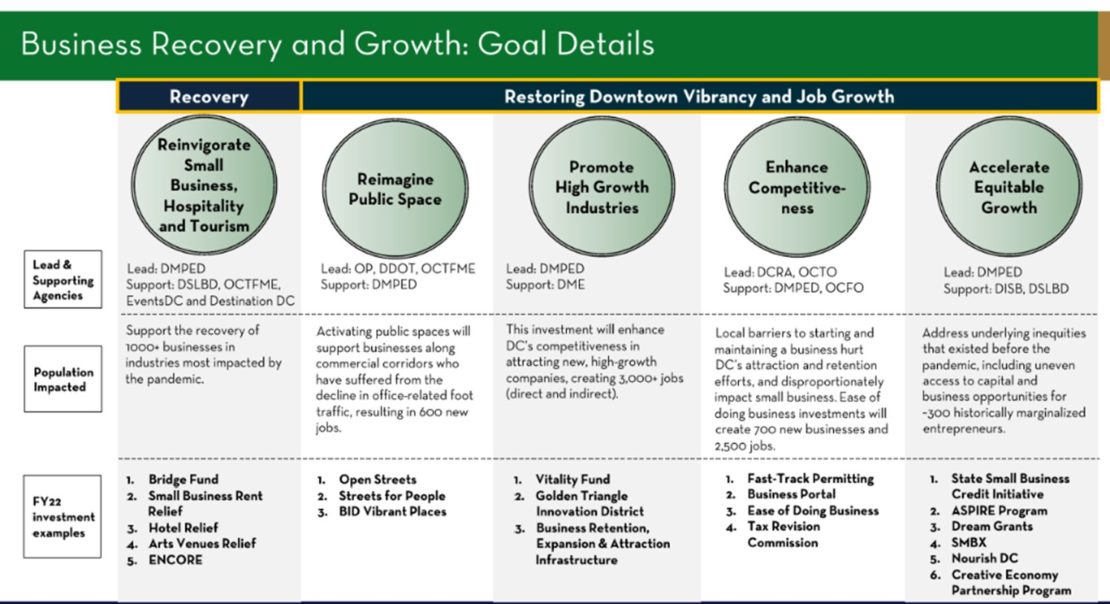
- The development of the Vitality Fund ($7.2 million in FY22). This fund is expected to create 750 direct jobs and 2,250 indirect jobs.
- The creation of the Golden Triangle Innovation Program ($2 million in FY22), which will support the development of an innovation district downtown.
- The Grow Golden Program, to connect entrepreneurs in the D.C. area to building owners and to fill high-profile ground-floor space with pop-up retail.
- Investment in public spaces across the district as part of an effort to reimagine public space downtown to enhance quality of life by activating these spaces for dining and recreation, and creating new centers for activity to offset the decline in foot traffic downtown.
- The dedication of significant funding (FY22) toward accelerating equitable growth for the District’s small businesses.
- Investments in streamlining and removing barriers to doing business in the District.
The panel was led by chair Marilyn Jordan Taylor (University of Pennsylvania) and included panelists William Gilchrist (director of planning and building, City of Oakland, Oakland, California), David Greensfelder (founder and managing principal, Greensfelder Real Estate Strategy, Albany, California), Diane Gormely-Barnes (principal planner, HNTB Corporation, Chicago, Illinois), James Lima (president, James Lima Planning + Development, New York, New York), Julie O’Brochta (associate, SOM, Chicago, Illinois), and Maggie Parker (managing partner, Innovan Neighborhoods, Dallas, Texas).
Nashville, Tennessee: Planning for Resilience and Recovery from the Christmas Day Bombing
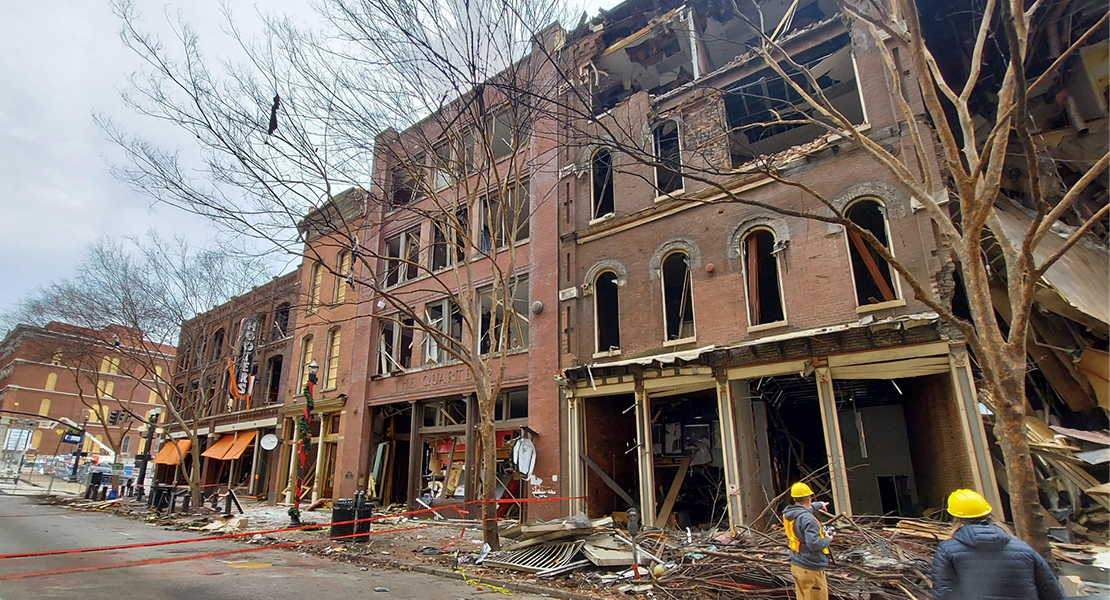
[Photo: Michelle Scopel]
The Metro Nashville Planning Department, the Metropolitan Housing and Development Authority, and ULI Nashville partnered to bring in a virtual Advisory Services panel in March 2021, which made recommendations as how to best rebuild the Second Avenue area that was devastated by the explosion in a way that pays respectful homage to its history while also looking forward as Nashville continues to develop and grow. The panel addressed questions relating to market conditions and economic opportunity along Second Avenue, improving circulation while maintaining historic design, and how to fund and implement the panel’s recommendations.
The panel’s recommendations emphasized the importance of preserving Second Avenue, incorporating the avenue into a distinct new tourist district, reconnecting the neighborhood to the river and planning for flood resilience, improving pedestrian connections and updating the streetscape, and incentivizing public/private partnerships. The presentation of the panel’s recommendations in March 2021 resulted in proposals from Second Avenue building owners and developers to redevelop damaged buildings to encourage connections between First and Second avenues and orient visitors to the riverfront, having been inspired by the ULI panel’s work.
The panel was led by chair Marilee Utter (Citiventure Associates LLC, Denver, Colorado) and included panelists Dorian DeBarr (Decide DeKalb, Decatur, Georgia), Clara Fishel (NAI Mopper|Benton, Savannah, Georgia), Joe Giangrandi (LandDesign, Alexandria, Virginia), Faron Hill, Peregrine Oak, Atlanta, Georgia), Richard Perlmutter (Argo Development Company, Potomac, Maryland), and Gerry Widdicombe (Downtown DC BID, Washington, D.C.)
Ada County, Idaho: Preserving, Celebrating, and Connecting Communities and Heritage at Expo Idaho
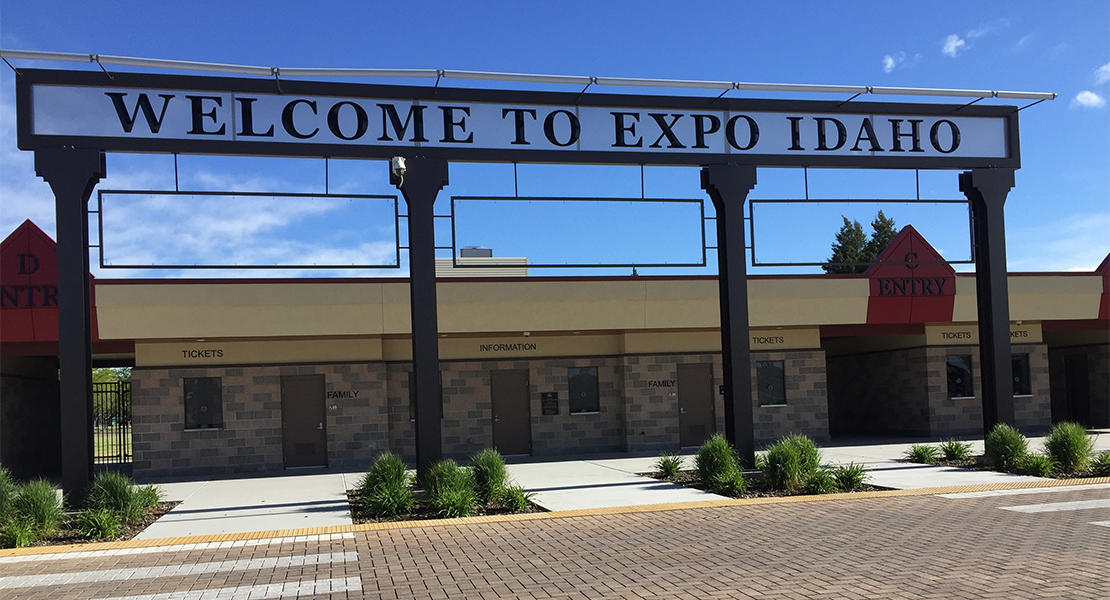
A 247-acre parcel being considered for redevelopment in one of the fastest-growing counties in the country is a rare thing and presents an exciting opportunity for Ada County, Idaho—Idaho’s most populous county—as it considers redevelopment options for Expo Idaho, an event center outside Boise and home to the much-loved Western Idaho Fair.
In June 2021, a ULI Advisory Services panel recommended to the Ada County Board of Commissioners practical steps for the site to best serve the community for generations to come. The panel—made up of independent, volunteer land use experts convened virtually by ULI—was charged with analyzing the feasibility of three redevelopment scenarios for the Expo Idaho site, proposed by the Citizens Advisory Committee following a yearlong process that included public engagement.
The panel assessed those scenarios and proposed a fourth approach guided by the maxim “Preserve. Celebrate. Connect.” to illustrate how Expo Idaho could accommodate a variety of community-proposed uses while generating significant public benefit for Ada County and the larger Treasure Valley region.
The potential for public benefit at a redeveloped Expo Idaho is enormous, and unlocking it will require short-term tactical steps, long-term strategic planning, and prudent and responsible public investment. In alignment with previous local studies that were supported by ULI’s recommendations, Ada County recently took steps toward repositioning open-space uses on the site.
Read more about this project in this Urban Land magazine article, authored by panelists Sarah Sieloff and David Armitage.
The panel was led by chair Sarah Sieloff (senior planner at Maul Foster Alongi , Bellingham, Washington) and included panelists David Armitage (director, Heartland, Seattle, Washington), Cielo Castro (chief of staff, Fairplex, Pomona, California), Nick Duerksen (economic development director, Sandy City, Sandy, Utah), Peter McEneaney (vice president, Thor Equities, New York, New York), Stacey Mosley (director of research, Brandywine Realty Trust, Philadelphia, Pennsylvania), Stephanie Pankiewicz (partner, LandDesign, Alexandria, Virginia), and Nicolia Robinson (associate principal, Cooper Carry, Atlanta, Georgia).
The Urban Land Institute is grateful for the support of The JPB Foundation for this panel.
Learn more about all virtual Advisory Services activities here.
To bring an Advisory Services panel to your community, contact Advisory Services today.
Explore


